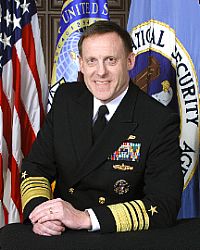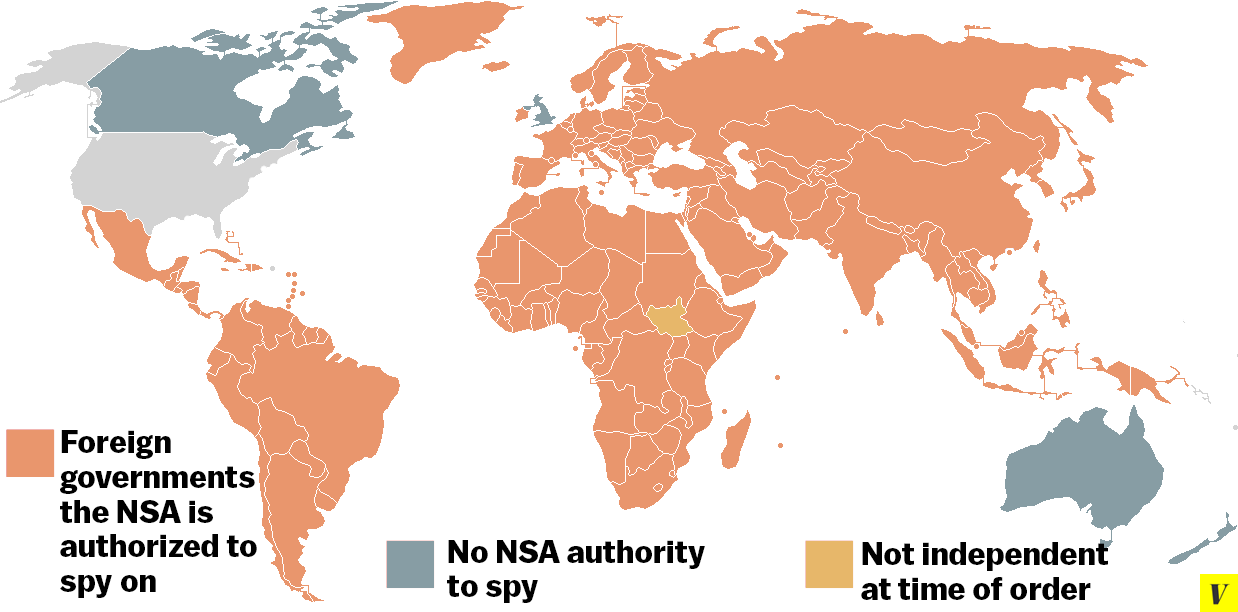I don’t pay much attention to the musical chairs game in Washington so I wasn’t aware that the NSA acquired a new drone last April. Code name: Adm. Michael Rogers.
Just in case you need a photograph for identification purposes:

Doesn’t look like he gets outside very often does it? Being a cryptographer, what else did you expect?
But that’s makes Rogers a dangerous leader of the NSA.
Consider the latest testimony by Rogers to Congress:
Certain nations are regularly performing electronic “reconnaissance,” Rogers warned, in an effort to be well placed within utility systems in the event that the networks relied on by chemical facilities, water treatment plants and other critical infrastructure components are ordered to be taken offline by a foreign government.
“All of that leads me to believe it is only a matter of when, not if, we are going to see something dramatic,” the NSA chief said.
Leading figures within the American intelligence community and Congress have long warned of potentially catastrophic repercussions if such networks should happen to be penetrated and pulverized by foreign actors with malicious intent, but Rogers’ remarks this week are among the most dire ever from not just individual well placed within the administration, but a person arguably most qualified to testify as much. (From China & others can cripple US power grid, NSA admits for the first time)
Well, except that water treatment plants and chemical facilities aren’t part of any seamless network. Minor detail I know but just because some contractor wants to protect us from a non-existent threat with cost-plus contracting, isn’t a reason to credit their reports.
If the Admiral wants to obsess about something, how about the regional power stations that are too big to be housed and are subject to attack with one person anti-tank weapons that could take such stations out for months. (Each is a custom build so there aren’t spare parts if oil cooling goes out and critical parts melt into slag.) No Internet or hacking required. And major parts of the United States could go dark for the entire time needed for repairs. Does that sound like a potential threat?
Compare that to the Admiral’s fantasy about cyber defense:
The U.S. Cyber Command has three primary missions, Adm. Rogers said. Along with defending DOD networks, the Cyber Command is “generating the cyber mission force, the men and women who are going to be addressing the department’s cyber needs, from the defensive to the offensive.” Lastly, Rogers said he is preparing the emerging DOD cyber force to defend U.S. critical infrastructure.
DOD’s cyber force has been given the responsibility to defend, for example, critical power and other utility, telecommunications and transportation networks—which he said are vulnerable to attacks from China and “one or two other” countries. He said a major attack was likely in the next decade.
The cyber chief estimated that DOD is about halfway toward its goal of organizing a cyber capability to defend U.S. networks. (From: NSA chief details ‘real’ threats to US networks, infrastructure)
Quick points to remember:
The civilian population comes dead last, assuming a threat exists at all.
Attack is “likely” within the next decade. (Courteous of our adversaries to wait for us to tool up to repel the attack.)
The DOD is halfway towards a cyber capacity to defend non-existent U.S. water, chemical plants, etc., networks?
The advantage of being halfway to defend networks that don’t exist isn’t clear. But, the DOD is also said to be halfway to being subject to auditing. Maybe those programs are on the same track?
All news outlets should be calling BS on testimony such as that by Adm. Rogers. Creating disinformation about security issues distorts the policy process and makes for fat contractors and a poorly served civilian population.
Not to mention making security issue topic maps more laborious to construct by re-weeding out false threats such as those being pandered by Adm. Rogers.
